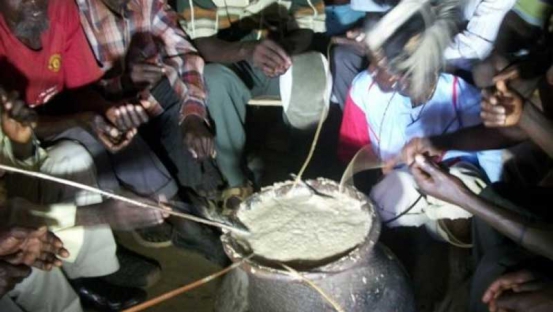
The popular busaa, a grain based unlicensed beer, has been found to contain cancer-causing poisons.
Researchers from the University of Nairobi, Germany and Canada have confirmed worrying levels of aflatoxins in local maize and sorghum-made beers.
Aflatoxins are poisonous carcinogens that are produced by certain molds that grow in soil, decaying vegetation and grains especially if they are not dried or stored properly.
The researchers warn that while the fight against illicit beers has been targeting ethanol poisoning, aflatoxins are equally a danger to thousands of Kenyans taking busaa.
The researchers led by Alex O Okaru from the University of Nairobi and the Chemical and Veterinary Investigation Office of Germany tested informal beers from across Kenya and cautions drinkers of possible negative health consequences.
The researchers collected maize, sorghum and plant sap-based beers, from sugarcane and ‘miti ni dawa,’ from 16 counties in Kenya. The samples were subjected to sophisticated chemical analysis in German laboratories, with results published recently in the journal of Food Control.
None of the plant-based wines were found contaminated with aflatoxin, as shown in the report. However, aflatoxin-contaminated maize grain beers and busaa, were recorded from Bungoma, Samburu and Taita Taveta counties.
“The samples from Samburu were sorghum-based while those from Taita Taveta and Bungoma were from maize,” says the study.
Busaa samples collected from Kibera in Nairobi had the highest prevalence of aflatoxin contamination. “Fifty per cent of the maize opaque beer samples collected from Kibera were contaminated with aflatoxin,” says the research.
The study suggests the high level of aflatoxin in beers from Kibera is due to deliberate use of bad grains by producers. “This is in an effort to keep the sale price of the drinks as low as possible by using cheap moulded grains,” suggests the study.
While Samburu and Taita are known to suffer grain shortages, the researchers did not establish a good reason for the use of contaminated maize in Bungoma County.
The study suggests at a time like now when Kenya is coming from a serious shortage of maize, the likelihood of using poor quality grains for beer brewing is very high.
The researchers warn that aflatoxin levels found in these alcoholic drinks are of a serious public health concern. “The levels are not just poisonous to human kidneys, the immune system, an unborn baby but also likely to interfere with an individual’s DNA.”
But more important, the researchers say, is that the toxins are likely to trigger the development of liver cancer in humans.
The threat of drinkers developing liver cirrhosis or cancer, the researchers say is confounded by the fact that most people in affected areas also consume a lot of ugali that may also contain aflatoxins.
Consumers, the study says should be made aware of the double tragedy of these informal drinks which together with aflatoxins also contain high levels of ethanol.
—www.rocketscience.co.ke
 The Standard Group Plc is a multi-media organization with investments in media
platforms spanning newspaper print
operations, television, radio broadcasting, digital and online services. The
Standard Group is recognized as a
leading multi-media house in Kenya with a key influence in matters of national
and international interest.
The Standard Group Plc is a multi-media organization with investments in media
platforms spanning newspaper print
operations, television, radio broadcasting, digital and online services. The
Standard Group is recognized as a
leading multi-media house in Kenya with a key influence in matters of national
and international interest.











